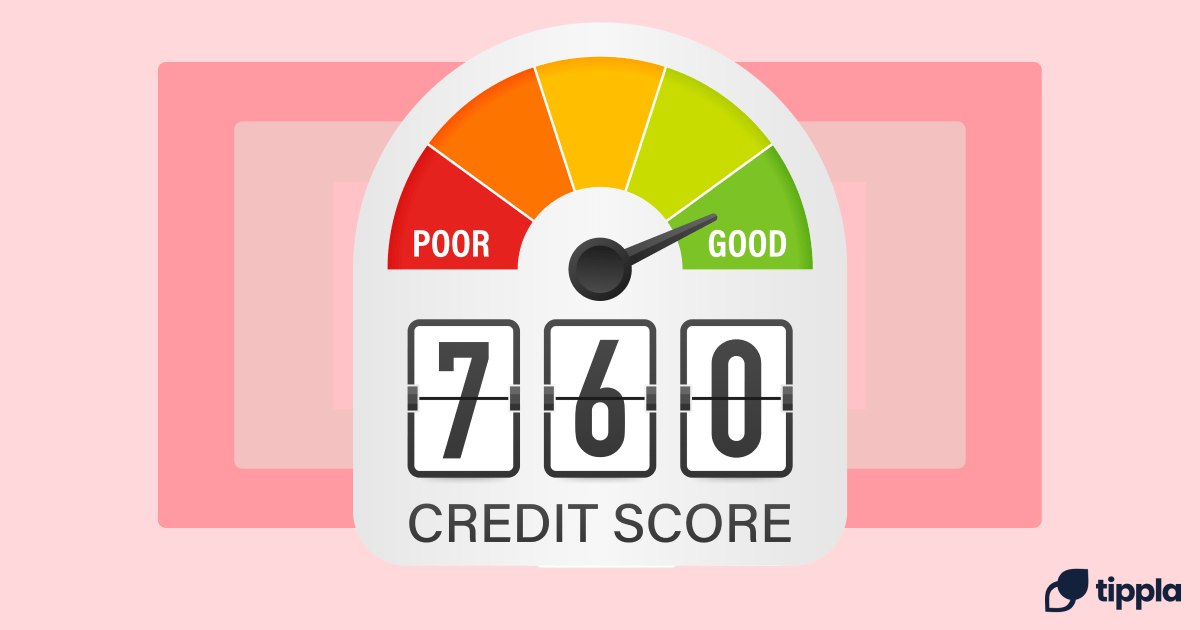Published in October 16, 2023
Debunking Common Misconceptions About Credit Scores in Australia

In personal finance, your credit score is really important. Your credit score is a three-digit number that holds the power to influence your eligibility for loans, credit cards, and even renting a home. However, navigating the concept of credit scores can often feel like a daunting task, with common misconceptions adding to the confusion. In this article, our goal is to clear the air surrounding these credit score myths, providing you with accurate information to empower your financial decisions.
What Is a Credit Score?
A credit score is essentially a numerical representation of your creditworthiness. It’s a three-digit number that tells lenders, banks, and other financial institutions how likely you are to repay borrowed money on time.
If you’re new to the world of credit scores and want to dive deeper on specific details surrounding it, you can check these related articles below:
- How can I start building my credit score
- How to understand my Experian credit score
- How to understand my Equifax credit score
- Credit scores for international students in Australia
Otherwise, let’s start discussing about the things you should not believe about credit scores. Let’s go!
Common Misconceptions About Credit Scores
Credit Score Misconception #1: Checking Your Credit Lowers Your Score
One of the most common misconceptions about credit scores is the belief that checking your credit score can have a detrimental effect, causing your score to drop. However, this notion is entirely untrue, and the reality is quite the opposite.
When you check your credit report, it’s considered a soft inquiry, which means that it has no negative impact on your credit score whatsoever. Regularly monitoring your credit report is not only a responsible financial practice but also a proactive step that can help you maintain a healthy credit profile.
Credit Score Misconception #2: Closing Credit Card Accounts Boosts Your Score
It’s a common belief that closing old or unused credit card accounts can have a positive impact on your credit score, but this is a misconception that can lead to unintended consequences.
Closing a credit card account may lower your credit score rather than boost it. This happens for a couple of key reasons. First, closing an account reduces the total amount of credit available to you, which can increase your credit utilisation ratio—the amount of credit you’re using compared to your total credit limit. A higher utilisation ratio can negatively impact your credit score. Second, closing an old account can shorten the average age of your credit history, which is another factor that contributes to your credit score. Lenders typically prefer to see a longer credit history as it demonstrates your ability to manage credit over time.
So, rather than closing old accounts, consider keeping them open and using them responsibly to maintain a positive credit history and potentially improve your credit score in the long run.
Credit Score Misconception #3: Income Affects Your Credit Score
Another widespread misconception is that your income level directly influences your credit score. Your income is not a factor considered when calculating your credit score.
Credit reporting bodies do not include income data in your credit report or use it to determine your creditworthiness. Instead, your credit score is primarily based on your credit-related activities, such as how you manage credit accounts, pay bills, and handle debts. While your income itself doesn’t directly impact your credit score, it can indirectly affect your ability to manage credit responsibly. A higher income may provide you with the means to pay your bills on time and maintain a good credit history, but it’s not a direct factor in the credit scoring process.
Credit Score Misconception #4: You Have Only One Credit Score
One of the common misconceptions about credit scores is the belief that you have only one credit score.
You have multiple credit scores, and the number can vary depending on which credit reporting agency is used by a lender. The three major credit reporting bodies in Australia—Illion, Experian, and Equifax—each maintain their own credit scoring models and algorithms. These agencies collect and evaluate your credit data independently, which can result in different credit scores for the same individual. Lenders may use any one of these credit reporting bodies when assessing your creditworthiness, making it crucial to regularly check your credit reports from all three agencies to ensure accuracy and to understand how different lenders might perceive your creditworthiness based on the credit score they access.
Credit Score Misconception #5: Credit Scores Are Permanent
A common misconception is that once you have a credit score, it remains fixed and unchangeable. In reality, credit scores are not permanent, and they can change over time.
Your credit score is dynamic and can fluctuate based on your financial behaviour and history. Positive actions, such as consistently paying bills on time, reducing credit card balances, and responsibly managing credit accounts, can lead to score improvements. Conversely, negative actions, like late payments, defaults, or collection accounts, can lower your score. It’s important to recognise that credit scores are influenced by your recent credit activities and history. Over time, older negative events may have less impact, especially if you’ve demonstrated responsible financial behaviour.
By adopting good credit management practices and maintaining a positive financial trajectory, you can work towards improving your credit score and ensuring it doesn’t remain a static number.
Credit Score Misconception #6: Credit Scores Are Not Important
Another misconception is that credit scores are not important in one’s financial life.
Credit scores play a pivotal role in various aspects of personal finance. A good credit score is often necessary to secure loans, credit cards, mortgages, and even rental agreements at favourable terms. Lenders use credit scores to assess your creditworthiness, determine interest rates, and approve or decline applications. Additionally, landlords, insurance companies, and even some employers may consider your credit score when making decisions. A low credit score can limit your financial options and potentially result in higher interest rates or loan rejections. Therefore, understanding the importance of credit scores and managing them responsibly is essential for achieving financial goals and maintaining financial stability.
Credit Score Misconception #7: Paying Your Rent Boosts Your Credit Score
Paying your rent on time automatically improves your credit score is another common misconception.
Rent payments are typically not included in your credit report and do not directly impact your credit score. Unlike some countries where rent reporting is becoming more common, in Australia, your on-time rent payments are not a factor in determining your creditworthiness.
However, it’s essential to understand that while paying your rent may not directly boost your credit score, failing to pay it on time can lead to negative consequences. Late or missed rent payments can result in late fees, eviction notices, and potential damage to your rental history, which may affect your ability to secure future rental agreements.
Credit Score Misconception #8: All Debts Are Equal in the Eyes of Credit Scoring
Not all debts are treated equally when it comes to credit scoring. Some people mistakenly believe that all debts, regardless of the type or amount, have the same impact on their credit score.
In reality, different types of debt, such as credit card debt, personal loans, and mortgages, can affect your credit score differently. High credit card balances relative to your credit limit can negatively impact your score, while instalment loans, like mortgages, may have a different effect. Understanding the nuances of how various debts are evaluated can help you make more informed financial decisions.
Credit Score Misconception #9: Age Determines Your Credit Score
One misconception worth dispelling is the notion that your age directly dictates your credit score. In reality, your age is not a direct factor considered when calculating your credit score as your credit score primarily hinges on your financial history and behaviour.
However, age can indirectly affect your credit score through factors such as the length of your credit history. A longer credit history, often associated with older individuals, can positively influence your score. Additionally, more experienced financial management and greater stability that may come with age can lead to responsible credit behaviour, potentially enhancing your credit profile.
It’s crucial to understand that while age can indirectly play a role in certain aspects of credit scoring, it’s not the determining factor. Responsible financial habits and credit management are the key drivers of your creditworthiness, regardless of your age.
Credit Score Misconception #10: Your Credit Score Is the Sole Factor for Loan Approval
Another common misconception is the belief that your credit score is the sole determinant of loan approval. While your credit score is undeniably a crucial factor, it’s just one piece of the puzzle.
Lenders typically consider multiple factors when evaluating loan applications. These factors include your income, employment status, existing debts, and overall financial stability.
Even if you have an excellent credit score, other aspects of your financial profile can influence whether a lender approves your loan application. For instance, having a stable source of income, a manageable debt-to-income ratio, and a strong financial history are equally vital. Conversely, a low credit score doesn’t necessarily mean automatic rejection if your other financial aspects align with a lender’s criteria.
While we at Tippla will always do our best to provide you with the information you need to financially thrive, it’s important to note that we’re not debt counsellors, nor do we provide financial advice. Be sure to speak to your financial services professional before making any decisions.
Related articles

Credit Scores and Mortgage Applications: What Australians Need to Know
15/09/2023
Many Australians dream of owning their own home, but...

How Often Does My Credit Score Change?
28/09/2021
We have covered what can affect your credit score...

Should I get a student bank account?
28/07/2021
Student bank accounts are essentially the same as any...

Checking accounts vs. Savings accounts
28/07/2021
There are a lot of similarities between checking and...
Subscribe to our newsletter
Stay up to date with Tippla's financial blog